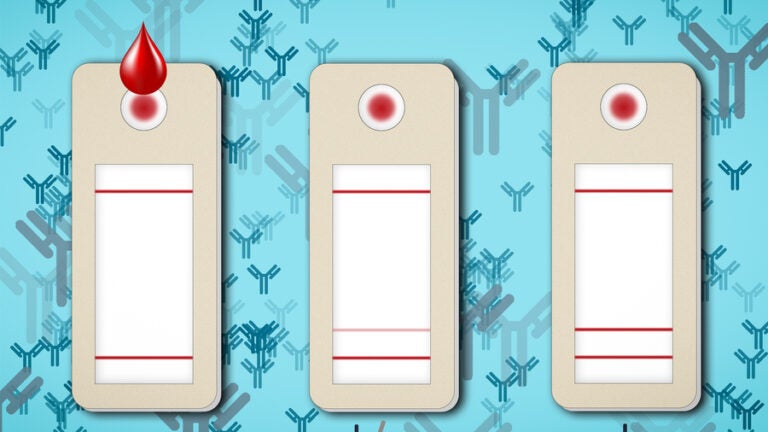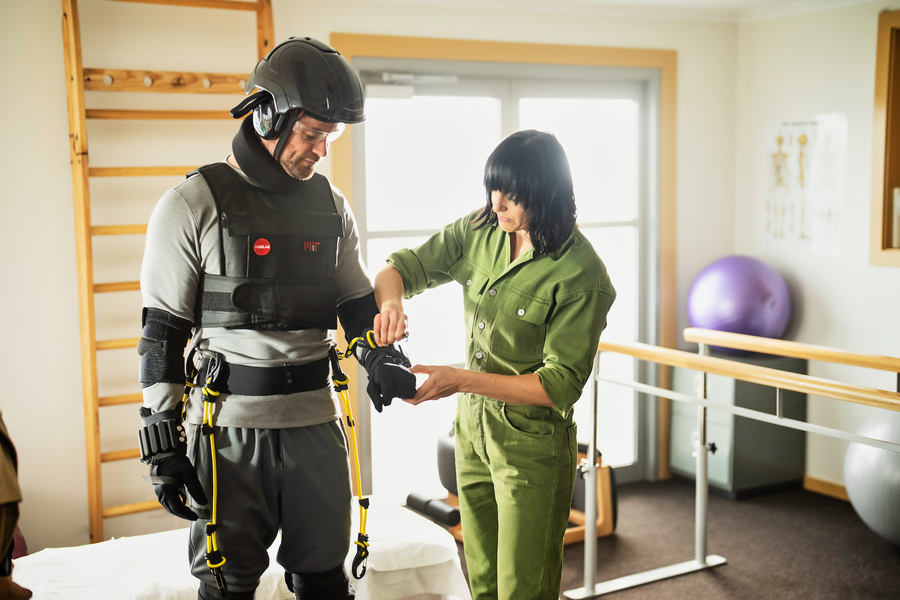“Our test’s accuracy was roughly about as accurate as you would see for a normal blood test.”
By Madeleine Aitken
Researchers at MIT have developed a test that measures immune protection against COVID-19 by measuring the level of neutralizing antibodies in a blood sample, using the same type of “lateral flow” technology as antigen tests.
Hojun Li, the Charles W. and Jennifer C. Johnson Clinical Investigator at MIT’s Koch Institute for Integrative Cancer Research and an oncologist at the Dana-Farber/Boston Children’s Cancer and Blood Disorders Center, originally pursued the idea for his cancer patients.
“They have very poor immune responses because we’ve either wiped out most of their immune system or we’re giving them chemotherapy, and so the thought was that we have no idea how long vaccine protection will last in our patients,” Li said. “With this test, we could just do this pretty frequently and say, ‘Oh, when your protection levels are low enough, you need an extra booster.’”
But the test could have a much greater impact than just Li’s cancer patients. It’s helpful for members of the general public to know their protection status as well.
“Say you got your last booster shot eight months ago and you have to go to a wedding,” Li said. “You might wonder, ‘Has my immunity waned?’ ‘Am I still adequately protected?’”
The test would help answer those questions. He noted that a lot of people think if they already got COVID-19, they have antibodies and therefore don’t need to get vaccinated, but this could help motivate more people to get vaccinated — or boosted.
Ultimately, Li hopes this test could be done at home, like an antigen test, but they’re several steps away from getting to that point. Right now, they’re trying to find a diagnostic testing company partner so they can manufacture and try out the test on a larger set to satisfy the FDA for approval. From there, it’ll likely be administered by health professionals at first, whether in a doctor’s office or at a pharmacy, before people can do it at home.




